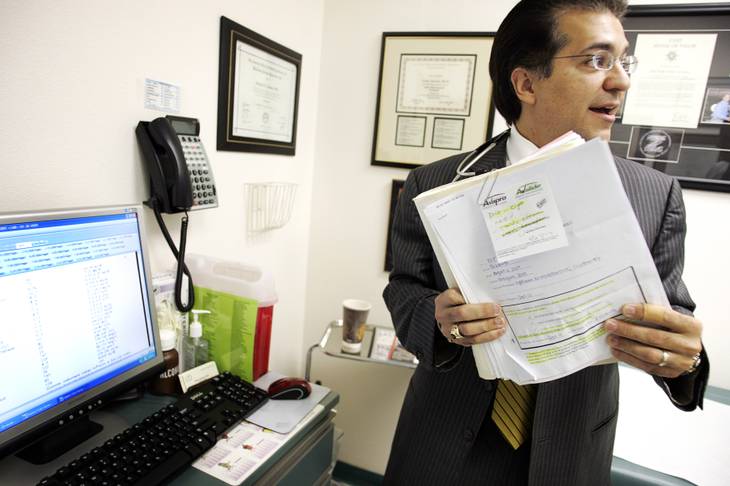The growing influence of Hispanics in Nevada’s business community is clear.
Since 1990, the state’s Latino population has more than doubled, from 10.4 percent to 26.6 percent. More than three-quarters of a million Latinos now live in Nevada.
The growth of the demographic has translated into more Latino business ownership. Hispanics own 8 percent of the state’s companies, and their 18,000 businesses generate $3.2 billion in sales and receipts. They employ tens of thousands of workers.
VEGAS INC sat down to speak with 10 of the most influential Latinos in Las Vegas’ business community. Influence comes in a lot of forms, and the people on our list have demonstrated it in various ways. Whether it is advancing an industry, training business leaders of the future or sponsoring community events, these 10 individuals affect how Nevadans live.
-
Norberto Madrigal, 34 - Lunas Construction
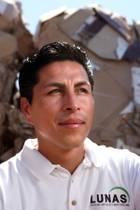
Business, and philanthropy, is a family affair for the Madrigal clan.
In 1988, patriarch Manuel Madrigal started Lunas, a construction clean-up company, after working for a similar business in Southern California. His four children — Norberto, Victor, Daniel and Diana — now run the business out of a warehouse in North Las Vegas. Manuel and his wife, Rosa, are back in California expanding the company; Lunas opened a branch there in 2011.
When Manuel started his company, he had one truck and a handful of workers. By the boom years, the business had grown to include 120 trucks and 300 employees. Lunas had to scale back to just under 100 workers during the bust, but business has started to pick up and Lunas is hiring again.
The Madrigals used the recession to diversify their business model. They sought out new ways to recycle the materials they collect. A few years ago they started collecting tires, which they now ship around the world for various purposes, including making sandals in Mexico.
Norberto, along with twin brother Victor, is the oldest of the siblings and acts as the face of the company’s community involvement. He is a board member for the Latin Chamber of Commerce.
Lunas recently teamed up with the Paiute community to turn wood pallets into mulch for crops on the reservation. When the Latin Chamber and Another Joy Foundation donated 162,000 books to Clark County Schools, Lunas stored and helped distribute the materials.
Norberto also brought Seminario Exito Personal Ahora, a California-based self-help seminar geared toward Hispanics, to Las Vegas.
The family said its philanthropy started with Manuel, who donated ambulances, fire trucks and a rehabilitation clinic to towns in his home state of Michoacan.
“My father always repeated a lesson with me where he would explain how a unified group is stronger than the individual,” Norberto said. “I try to live by that and do what I can to support the community. We have been blessed with a lot of support from this community, and now it’s our turn to help someone else succeed.”
-
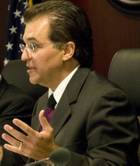
Tony Alamo, 48 — Doctor, gaming commissioner
Tony Alamo was born in Reno to Cuban parents and, except for a few years away at school, has spent his entire life in the Silver State. He has shaped some of Nevada’s most visible industries.
Alamo served on the Nevada State Athletic Commission for six years and was recently reappointed to the Nevada State Gaming Commission by Gov. Brian Sandoval for a second four-year term.
During his tenure on the Gaming Commission, members for the first time tackled the regulation of Internet poker in anticipation of the federal allowance of interstate Internet gambling. While on the Athletic Commission, Alamo was part of the 2002 decision to deny a boxing license to Mike Tyson. Alamo also coauthored a paper in the Journal of Neurotrauma about traumatic brain injury in unarmed combatants.
As a physician, Alamo has served as the chief of staff of two hospitals: Sunrise Hospital and Children’s Medical Center, the largest hospital in Nevada, from 2002 to 2004 and St. Rose Hospitals-San Martin campus from 2006 to 2009. He also has worked as the tactical physician for the SWAT bureau of Metro Police for 14 years.
He is currently medical director of the Alamo Medical Clinic in Henderson and specializes in internal medicine.
-
Javier Barajas, 53 — Lindo Michoacan
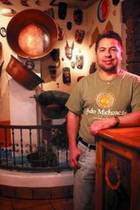
Javier Barajas came to Las Vegas by himself from Michoacan, Mexico, when he was 17 years old.
Before his arrival in Southern Nevada, Barajas lived in a seminary where nuns taught him to cook. He realized he was not cut out for the cloth but found work as a dishwasher when he arrived in Las Vegas. He eventually worked his way up to cook.
On January 6, 1990, Barajas opened his first restaurant, at East Dessert Inn, with six tables. Today, he operates three eateries with close to 300 employees.
Barajas aims not only to elevate local Mexican cuisine but also to deliver impeccable service and ambiance.
“My food is very high quality compared to the Mexican restaurants when I first came here,” he said. “Also, decoration is very important. Everything is from my hometown and is handmade. When you come to my restaurant you enjoy everything: atmosphere, food and service. Lindo Michoacan taught people what real Mexican food is, and that was my dream.”
Barajas’ restaurants have become community hubs and regular stops for politicians. Secretary of State Hillary Clinton visited Lindo Michoacan during her run for the Democratic presidential nomination in 2008.
Former Nevada Gov. Kenny Guinn also used to invite Barajas to the governor’s mansion once a year to cook, Barajas said.
-
Sandy Colon Peltyn, 58 — Desimone Consulting Engineers

Sandy Peltyn moved to Las Vegas to work on some of the region’s most famous sites, including the Bellagio, Venetian and Treasure Island. But she may be best known for her philanthropic work.
Together with her son R.J., Peltyn — who handled community relations for her husband Roger’s engineering business — she created the Foundation for Excellence, which sponsors the annual Senoras of Excellence Award. The foundation has given out about 290 scholarships for higher education in seven years.
Peltyn, who was born in Puerto Rico, moved to Las Vegas with her husband in 1984.
“We immediately got involved when we moved here,” Peltyn said. “I think the kidney foundation was the first one. Eventually I pretty much got my hands on every charity throughout the years, either organizing them, doing the silent auction, going after grants or some other job.”
“I just believe that we are all in this together,” Peltyn continued. “With the economic situation nationally, Las Vegas has been affected greatly. I know this because I’m in the construction business. If we don’t give to the organizations that are working for the betterment of the community, we are doing a disservice.”
Peltyn works with several medical charities while still serving as a marketing manager for DeSimone Consulting Engineers. Most recently, she was asked to serve on the commission for the establishment of a National Museum of the American Latino run by the Smithsonian Institute.
-
Felicia Ortiz, 33 — Cluster Construction Consulting, LLC
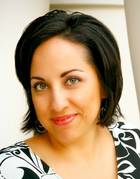
Felicia Ortiz grew up in Las Vegas, N.M. and moved to Las Vegas, Nev., in 2001.
Ten years later, she started her own company with partner Mark Bodner. Cluster Construction Consulting assesses and revamps construction businesses’ software systems.
At first, only the two partners ran the operation. Now, they have nine employees.
Ortiz said she has had to battle many stereotypes while working to gain new clients.
“I’m young and a girl, and you are not always taken seriously in the industry,” she said.
Ortiz also serves as president of the local chapter of the Association of Latino Professionals in Finance and Accounting, a nonprofit organization that provides scholarships and services to Latino in business, finance and related fields. She has started a scholarship through the association for college-bound Las Vegas students.
“I don’t see a lot of young Latinos in our industry, in technology or construction, and I hope I’m creating a path for others,” Ortiz said. “I’ve had a really good mentor, who is now my business partner. I also got lucky in high school and had great mentors who helped me see all that was out there, and because of that I set higher goals for myself. For me, being involved in ALPFA is my way of giving back.”
-
Eddie Escobedo Jr. , 51 — El Mundo
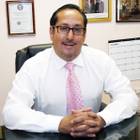
Eddie Escobedo Sr. was well known in the Las Vegas Hispanic community for his civic involvement, good nature and characteristic Homburg-style hat. For 30 years, he ran El Mundo, Las Vegas’ Spanish-language newspaper.
When he died at the end of 2010, his son was left to take over the job. The transition went smoothly because Eddie Escobedo Jr. had been by his father’s side almost constantly as the paper grew since its inception in 1980.
When El Mundo started, it filled the niche left by La Verdad, a Spanish-language publication that failed. For the next 16 years, El Mundo had the market to itself, Escobedo Jr. said.
The paper, which recently relaunched its website, is now a vital source of information for the Spanish-speaking community and sponsors local soccer leagues, ballet folklorico groups and other organizations.
Escobedo Jr. is the region five director of the National Association of Hispanic Publications, was vice president of the National Hispanic Press Foundation and has served on the Las Vegas zoning board and on the Latin Chamber of Commerce board of directors.
“It’s a continuation of what my dad actually started, but it’s nothing new to me because I was always with him,” Escobedo Jr. said. “We’ll always have the goal to be part of the community, represent the community and help the community. It’s not just about participation, but getting involved and engagement.”
-
Tony Sanchez, 48 — NV Energy
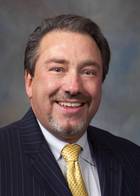
Tony Sanchez’s title at NV Energy, Senior Vice President for Government and Community Strategy, doesn’t do justice to all the roles he plays for the utility.
The Las Vegas native who graduated from Valley High School oversees regulatory matters, the environmental and safety division, local and state political issues, corporate communications and all of the company’s philanthropic efforts.
With guidance from CEO Michael Yackira, Sanchez worked with UNLV to set up a minor in renewable energy with a focus on solar power. A similar program was set up at UNR for geothermal energy.
Sanchez encourages NV Energy’s employees to be active in their communities, and last year the firm’s 3,000 employees completed 30,000 volunteer hours.
“For me, everything we do with respect to education is special,” said Sanchez, who is on the Executive Committee of the Clark County Public Education Foundation. “This is our future work force, and NV Energy needs educated employees, engineers, biologists, geologists. We even have an archeologist that works for us. We need people in finance, lawyers of course, political scientists. That’s why we are so focused on education.”
In May, NV Energy granted $1,000 college scholarships to 95 Nevada students.
Sanchez has also previously served as chairman of the Latin Chamber of Commerce and is a current board member at Nevada Partners, a organization that conducts job training and youth programs.
-
Randy Garcia, 58 — The Investment Counsel Company
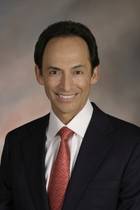
Randy Garcia was in his first year of law school on a Fulbright scholarship when he realized he didn’t want to practice law for the rest of his life.
Today, Garcia runs the Investment Counsel Company, which Barron’s named the top investment firm in Nevada in 2010 and 2011.
“In this field, I felt the opportunities rested on my shoulders and it was a chance to create my own destiny,” Garcia said.
Now, Garcia tries to shape the destinies of young Nevadans with support for scholarships and educational initiatives. He funds an MBA scholarship at UNLV, where he is on the UNLV Foundation board of trustees, and also donates money for undergraduate scholarships. Garcia helped pay for a program at Nevada State College that tries to set at-risk youth on the right path through college courses and mentoring, and he has sponsored programs at West Preparatory High School for kids to go to parks, museums and on other cultural trips.
“I’m most passionate about giving young adults an opportunity that they otherwise would not have,” Garcia said. “I have strived to create positive, systemic change within the Hispanic community.”
-
Brian Ayala, 47 — Tags Evolution
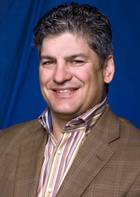
For 25 years, Brian Ayala worked for Ayala’s Inc., the airport concessions business his father started with a few candy stores that today has 150 employees and annual sales of $13 million.
More recently, Ayala and his wife, Michelle, branched out on their own with Tags Evolution, a jewelry and accessories retail store with locations at McCarran International Airport and the Miracle Mile Shops at Planet Hollywood.
Ayala serves on the board of directors for the Latin Chamber of Commerce and Three Square food bank, which distributes 24 million pounds of food to the needy each year.
“I used to buy an extra Subway sandwich for a homeless person and finally a friend said to me, ‘You know, you can do a lot more with that money,’” Ayala said.
The friend referred Ayala to Three Square.
-
Domingo Cambeiro, 71 — Domingo Cambeiro Corp. Architects
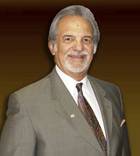
It’s hard to go anywhere in Las Vegas without seeing the work of architect Domingo Cambeiro, the mind behind the designs for the Thomas and Mack Center, Terminal C at McCarran Airport, the Clark County Government Center and more than 100 local schools.
Cambeiro, who emigrated from Cuba in 1962, founded his company in 1970 and immediately started employing sustainable practices into his designs.
“I was practicing sustainable architecture even years prior to it being a trend,” Cambeiro said. “Form follows function and buildings have to be functional most of all. Then, the architect can add his flare.”
For one of his early projects, a housing authority building, Cambeiro incorporated a solar heating system to cut down the facility’s energy usage. He experimented with extra insulation, the thickness of walls and grey water recycling.
“I was a firm believer early on of using grass, but not too much,” Cambeiro said. “Grass is good to soften the look of building, but I kept it to a minimum and complimented it with desert landscape.”
Cambeiro is a strong supporter of education, has raised money through the Latin Chamber for scholarships and also has served as a mentor to younger students.
And he’s still designing.
“I still got the fire in my belly, and I love architecture,” he said. “I’m fired up every day, and I don’t think I’ll ever retire.”
